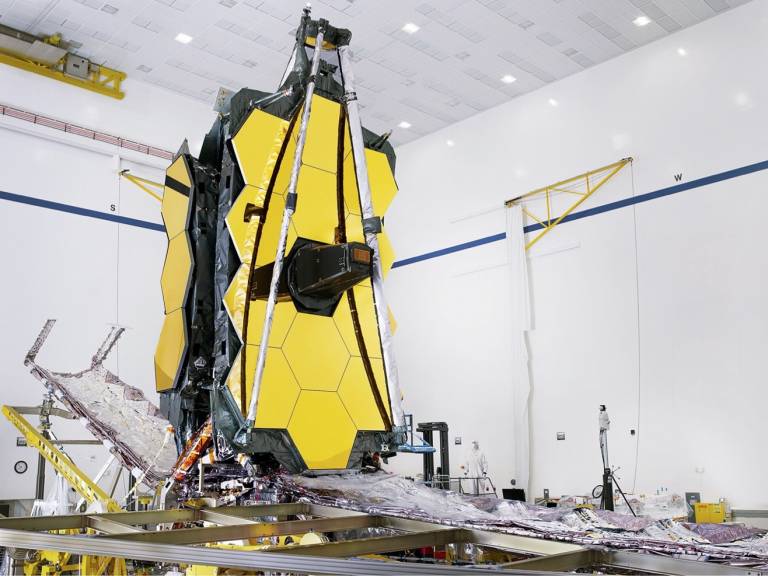A summary of accepted proposals to date on the James Webb Space Telescope (JWST)
The James Webb Space Telescope will launch on December 18, 2021, and the First Light group have had great success in the first cycle of observing time awarded.
Accepted proposals with a First Light group member as Principal Investigator
- The Role of Radio AGN Feedback in Massive Galaxies at z = 4 - 6, PI: Dr Aayush Saxena, 23.8 hours, NIRSpec/IFU Spectroscopy
- Linking Bright Galaxy Properties to IGM Opacity and Environment in the Early Epoch of Reionization with NIRSpec, PI: Dr Guido Roberts-Borsani, 25.1 hours, NIRSpec/MOS
- NIRSpec Integral Field Spectroscopy of LyC-Leaking Galaxies, PI: Dr Koki Kakiichi, 24.1 hours, NIRSpec/IFU Spectroscopy
- H-drop Galaxies: "Rosetta Stones'' at z~13 for Galaxy Formation Studies, PI: Dr Yuichi Harikane, 6.6 hours, NIRSpec/Fixed Slit Spectroscopy
- Anchoring z>6 Galaxy Metallicities Using T_e and n_e Diagnostics Enabled by JWST and ALMA Spectroscopy, PI: Dr Yuichi Harikane, 23.7 hours, NIRSpec/IFU Spectroscopy, MIRI/MRS, NIRCam/Imaging
Accepted proposals where a First Light group member is a Co-Investigator
- PRIMER: Public Release IMaging for Extragalactic Research, PI: James Dunlop, 187.2/47.5 hours, MIRI/Imaging
- The AURORA Survey: First Direct Metallicity Calibrations at High Redshift, PI: Alice Shapley, Ryan Sanders, 63.8 hours, NIRSpec/MOS
- Resolved Studies of a Unique Lensed Quiescent Galaxy at z=2: Testing Models of Assembly History, Quenching, and IMF Variations, PI: Andrew Newman, 13.7 hours, NIRSpec/IFU Spectroscopy, NIRCam/Imaging
- Where Cosmic Dawn Breaks First: Mapping the Primordial Overdensity Powering a z~9 Ionized Bubble, PI: Rohan Naidu, 7.1 hours, NIRCam/WFSS

The James Webb Space Telescope
 Close
Close

